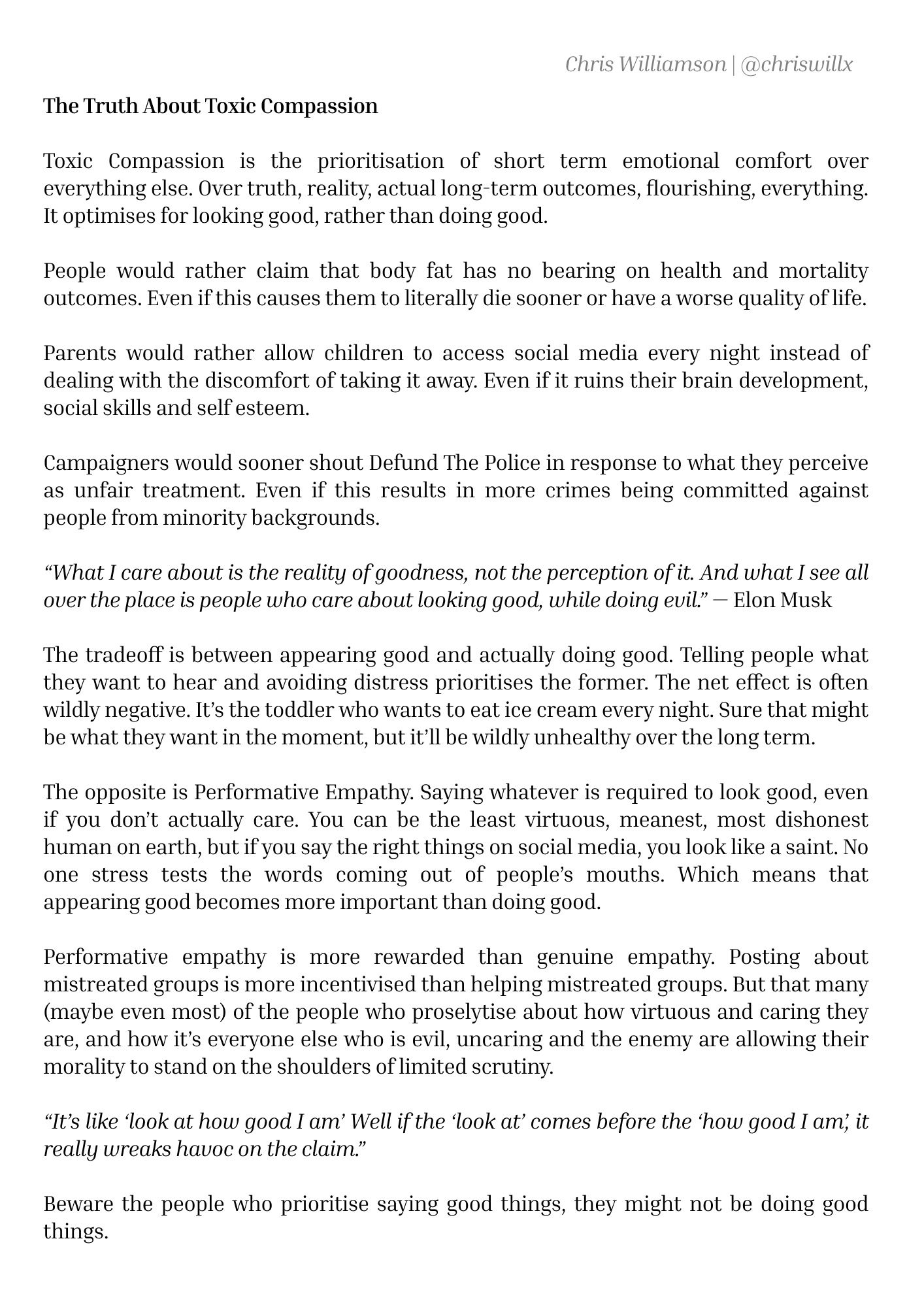Toxic Compassion
Updated on

Chris Williamson’s post about “toxic compassion” hits a nerve in marketing too. Sometimes brands care more about looking caring than actually helping their customers. That’s toxic marketing — it feels good in the short term, but it kills long-term trust.
Why it works
- Real trust comes from results, not slogans
- People sense authenticity better than marketers think
- “Virtue signaling” may go viral but doesn’t create loyalty
- Honesty builds more brand equity than perfection
Real world hits and misses
- Patagonia: backs up its eco claims with real actions like donating 1% of sales.
- Pepsi’s Kendall Jenner ad: tried to look “woke,” blew up instead.
- Dove’s “Real Beauty” campaign: celebrated body positivity and sold product.
- Volkswagen’s emissions scandal: “eco-friendly” marketing, dirty reality.
Looking good gets clicks. Doing good gets customers.
Analyzed by Swipebot
Loading analysis...